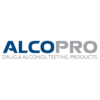(a) All collections under DOT agency drug testing regulations must be split specimen collections.
(b) As the collector, you must take the following steps, in order, after the employee brings the urine specimen to you. You must take these steps in the presence of the employee.
(1) Check the box on the CCF (Step 2) indicating that this was a split specimen collection.
(2) You, not the employee, must first pour at least 30 mL of urine from the collection container into one specimen bottle, to be used for the primary specimen.
(3) You, not the employee, must then pour at least 15 mL of urine from the collection container into the second specimen bottle to be used for the split specimen.
(4) You, not the employee, must place and secure (i.e., tighten or snap) the lids/caps on the bottles.
(5) You, not the employee, must seal the bottles by placing the tamper-evident bottle seals over the bottle caps/lids and down the sides of the bottles.
(6) You, not the employee, must then write the date on the tamper-evident bottle seals.
(7) You must then ensure that the employee initials the tamper-evident bottle seals for the purpose of certifying that the bottles contain the specimens he or she provided. If the employee fails or refuses to do so, you must note this in the “Remarks” line of the CCF (Step 2) and complete the collection process.
(8) You must discard any urine left over in the collection container after both specimen bottles have been appropriately filled and sealed. There is one exception to this requirement: you may use excess urine to conduct clinical tests (e.g., protein, glucose) if the collection was conducted in conjunction with a physical examination required by a DOT agency regulation. Neither you nor anyone else may conduct further testing (such as adulteration testing) on this excess urine and the employee has no legal right to demand that the excess urine be turned over to the employee.
[65 FR 79526, Dec. 19, 2000, as amended at 66 FR 41951, Aug. 9, 2001]
